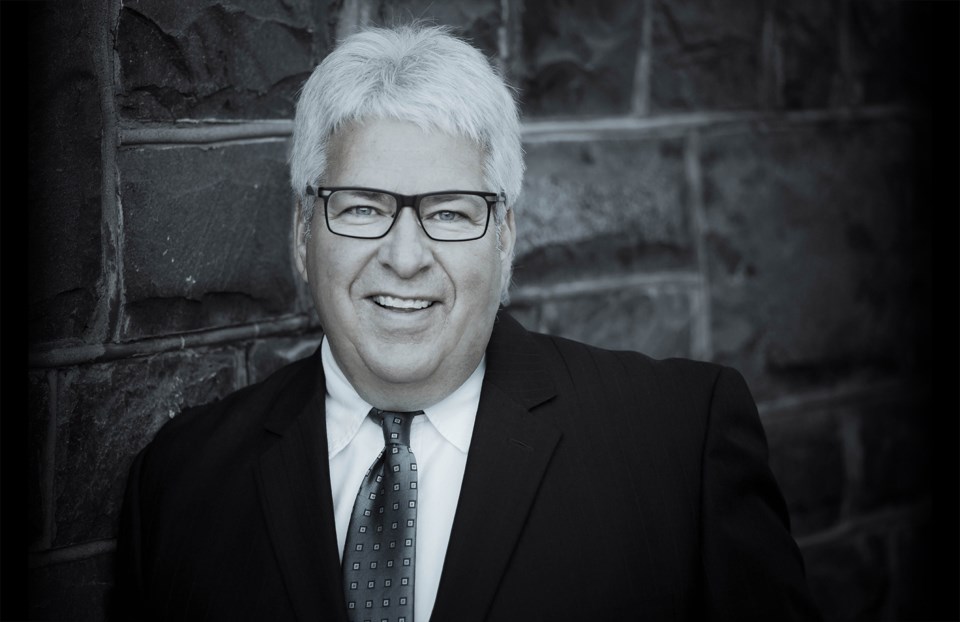As the COVID-19 pandemic marches on, Brian Vendramin predicts a full 20 per cent of businesses won’t weather the storm, and those that do will have to take some risks.
His advice to entrepreneurs? “If it’s not broken, break it.”
It may sound counterintuitive, but the Cambrian College professor and business advisor suggested that by breaking down their current business model, owners have to then look closely at each piece of the puzzle and reassess how they all work together.
“Maybe the pieces fit differently, and maybe you don’t need as many pieces,” he said.
Speaking during a June 7 virtual “coffee chat” sponsored by Sudbury’s Regional Business Centre, Vendramin provided tips on navigating the COVID-19 pandemic as a business owner.
Entrepreneurs are, by nature, risk-takers, Vendramin said, and to succeed through the rough times, they need to be bold and take action.
Looking beyond the bottom line will help them figure out how to stand out from the crowd.
"If you compete on price and price alone, it’s a race to the bottom,” Vendramin said.
“So when you’re thinking about working on your business, what is your competitive advantage? What's your distinctive competency? What's going to set you apart from everybody else?"
Models that have successfully adapted since the pandemic’s onset range: office settings are consolidating their operations as more employees work from home, while in education, in-class studies have made way for virtual learning.
Even some funeral homes are livestreaming services to allow mourners to pay their respects while still respecting physical distancing requirements, Vendramin noted.
Every entrepreneur should consider the financial, human resources, and marketing aspects of their business, he added.
Consulting with lenders, looking into available funding opportunities, and investigating government support programs such as the Canada Emergency Commercial Rent Assistance (CECRA) area all important exercises for small businesses, he noted.
Assessing staffing levels and putting in place proper COVID-19 training are important, but Vendramin also suggested training staff to watch for customers experiencing social anxiety.
“A lot of people have not been out for a long time, and when they come out they really don't know how to react,” he said.
“I think it's time that we learn how to show empathy, and this might be a lesson that we can continue as part of our everyday training.”
When it comes to marketing, entrepreneurs need to relay a strong message of support to clients, as well as outline the services they offer, such as online shopping or curbside delivery.
He advises business owners against delegating important tasks to junior employees, suggesting business owners themselves need to be hands-on with customers, walking the floor and checking in on clients’ experiences.
“That's the contact that you need with your customers,” Vendramin said. “Don’t relegate that type of a job to a young student.”
Some sectors are seeing a surge in business with the easing of restrictions.
Office supply and electronics stores, restaurants, hardware stores, and even hotels are experiencing an uptick in activity.
However, Vendramin cautioned, there is still the threat of a second wave of COVID-19 cases on its way, and business owners should be mindful of that.
In preparation, he said, entrepreneurs should stay in constant communication with staff and clients, demonstrating diligence and support.
That means regular and timely updates to their website and social media portals on when they’ll be returning to business and what sorts of measures they’re taking to keep workers and clients safe.
"It takes planning to do it, but put on that couple-minute video keeping people updated,” Vendramin advised.
Businesses should be reformulating their reopening plans and establishing a supply chain for COVID-19-related supplies including hand sanitizer, masks, and gloves.
But amidst all the planning around reopening and the care of employees and customers, Vendramin advised entrepreneurs to also take some time for self-care, whether it’s a walk or meditation, or some other form of mindfulness.
“I know as a small business owner, you eat, live, and breathe your business. What are you doing to be mindful?” he said.
"Some of you might think this is fluff, because you've been in business a long time, but you need to be well, you need to be calm."
In general, Vendramin suggested, entrepreneurs should be flexible.
With no vaccine for COVID-19 yet available, it could still be a year or more before business returns to ‘normal.’
Rather than become lulled into a false sense of security, Vendramin advised entrepreneurs to be vigilant, and keep adapting as the situation changes.
“If you spend a lot of time looking at your model you will come up with new innovations,” he said. “You may not hit them all out of the park, but you at least need to try.”




